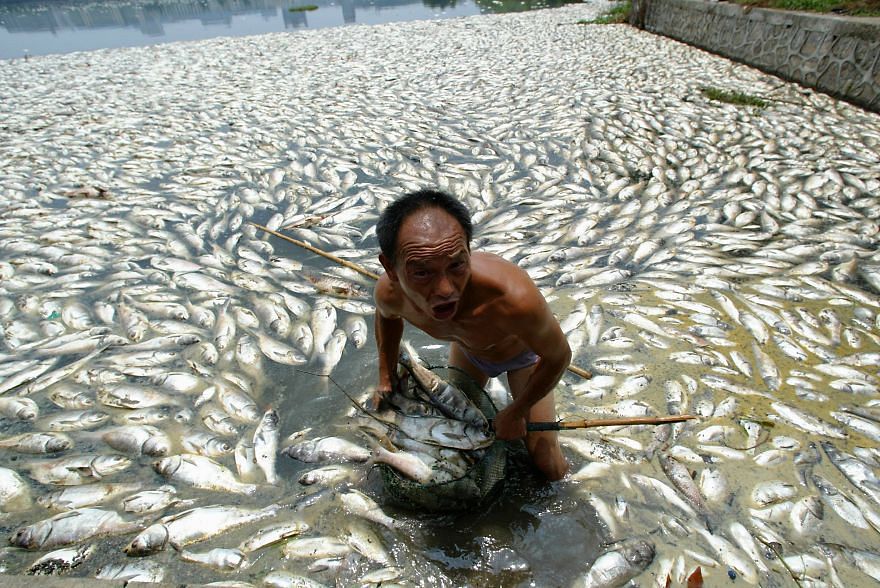To combat pollution, China has shut down more than 80,000 factories across the country.
In the past year, China's Ministry of Environment has sent inspectors to 30 provinces, forcing up to 40% of the country’s factories to close. They have also fined or charged officials responsible for violating pollution regulations with criminal offenses, as reported by NPR.
The aggressive campaign aimed at creating bluer skies and cleaner water began two years ago, but ramped up in recent months, according to the New York Times. The crackdown is a direct response to the country’s abysmal air quality that often leaves the sun completely obscured by smog.
While it will be a long process, positive effects from the measures are already becoming apparent. Nikkei Asian Review reports that smog dropped by more than 30% in the Beijing-Tianjin-Hebei area, the Yangtze River Delta and the Pearl River Delta in Guangdong province.
National leaders were optimistic and unified in their support of the campaign at last week’s National Congress of the Chinese Communist Party. President Xi Jinping said: “Clear waters and lush mountains are as valuable as gold and silver." He also added that the well-being of citizens should not be sacrificed for unbalanced growth.
Observers outside the Party see reason to place trust in the efforts. Shanghai-based environmental lawyer Peter Corne explained to NPR while previous attempts by the government to tackle pollution were carried out by environmental agencies, this time they will be implemented by China’s various tax bureaus. He told the news source that this is crucial: “because China's tax bureaus are powerful entities backed up by rigorous laws that, when violated, are typically met with aggressive local enforcement.”
The restrictions are not without their costs, however. Economists at Société Générale, a French bank, predicted they could slow economic growth by two-tenths of a percent, Reuters notes. Additionally, costs are rising for numerous manufactured goods including zinc ore, paper, batteries and karaoke machine speakers. The effects are being felt by both domestic factories and foreign buyers, and in some cases are even driving entire supply chains overseas.
Chinese officials do not argue that the economy will take a hit from the closures in the short-term, but as Li Ganjie, China’s minister for environmental protection, contends: “In the long run, and from the macro perspective, the impact will be minimal.” Moreover, there seems to be an increasing understanding that the environment and the human relationship with it cannot be measured in economic terms alone.
[Photo via Flickr user leniners]














